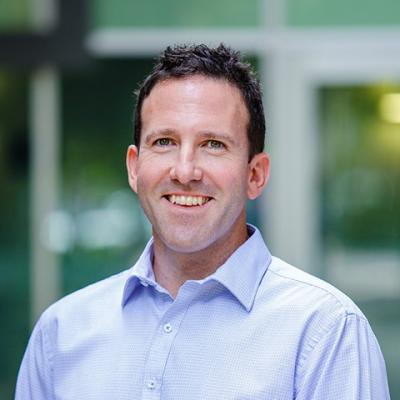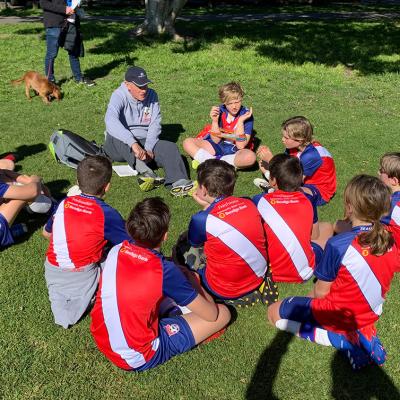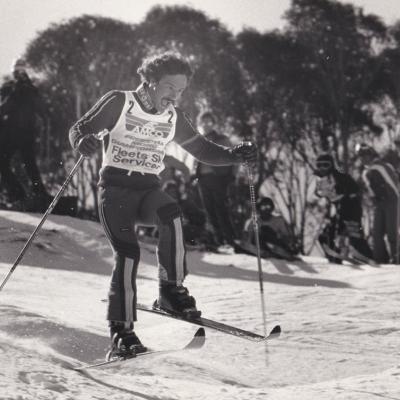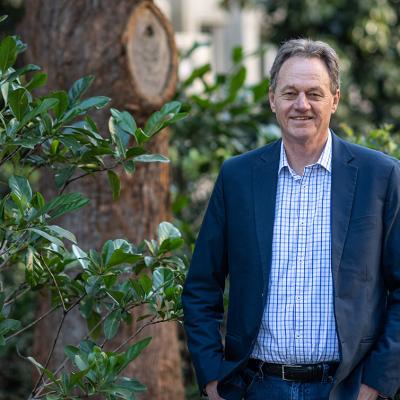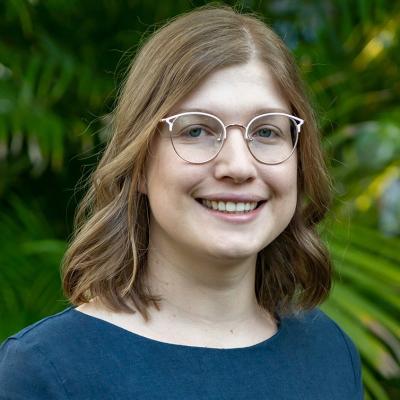Dr Steven Rynne's CV ranges from health and physical education teacher and youth sports coach to researcher and lecturer in high performance coaching. So, it's no surprise he knows a thing or two about what makes a good sports coach and the key ingredients for athletic success.
Steven has dedicated his entire career to promoting positive sporting experiences. He now educates coaches while advancing research on coach learning.
A common thread in Steven's work is his commitment to fostering excellence for coaches and athletes to realise their potential.
A journey of passion and purpose
Steven’s passion for sport and his deep appreciation for the pivotal role coaches play in shaping quality sporting experiences trace back to his childhood.
"I owe a significant part of my sport memories to my parents' support and the invaluable guidance of some exceptional coaches," he says.
But Steven is keenly aware that not everyone is as fortunate in their sporting journey.
"For some people, the worst moments in their life have happened in sport – I want to help change that," he says.
Steven’s purpose is clear: to ensure every person's initial foray into sports, from grassroots to the highest levels, is marked by the presence of quality coaches.
"The coach is an integral, but often unappreciated and misunderstood, component of sport. They possess the potential to profoundly impact everyone within the sporting realm."
But their influence isn't always positive.
"It takes skilled and thoughtful coaches to provide the best conditions for people to thrive in sport," says Steven.
What makes a good sports coach?
Steven has a strong understanding of what constitutes a good sports coach.
"When we discuss effective coaching, it's crucial to acknowledge that coaching varies significantly, depending on whether you're working with children or elite athletes," he says.
"So, for instance, a coach of a youth baseball team would adopt different techniques to that of a coach of a professional team qualifying for the Olympics."
"At the elite level, we are seeing coaches becoming more collaborative and less authoritarian, recognising that players are the ones in action, and coaches should facilitate their progress."
While coaching may seem straightforward to many, Steven says that few truly appreciate the intricate, multifaceted nature of the role.
"Even coaches themselves may not fully comprehend the vast scope of their potential impact," he says.
"Being an exceptional coach transcends technical expertise; it encompasses a unique fusion of skills, qualities, and an unwavering commitment to nurturing athletes' potential.
"Coaches must possess a solid grasp of how people learn, nurturing curiosity and a desire to improve. They should also excel in communication, adaptability, leadership, and empathy."
"A good sports coach is an embodiment of dedication and a true catalyst for positive change. They are the unsung heroes, shaping not only athletes but also the future of sports itself."
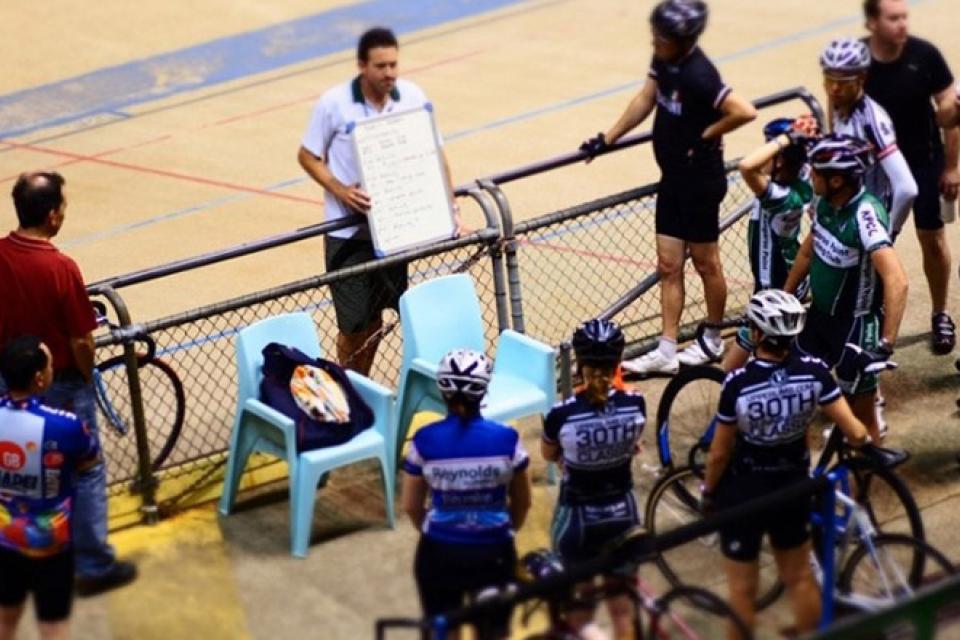
Shaping the sports coaches of tomorrow
Steven is the lead for UQ’s Master of Sports Coaching programs, providing a comprehensive range of online courses tailored for aspiring and practising sports coaches.
"Our mission is to empower coaches to elevate their expertise to the next level," he says.
"We achieve this by employing practical, work-based learning methods customised to their unique coaching circumstances."
These programs go beyond the fundamentals, delving deep into the intricate dimensions of coaching and athletic performance.
"We help coaches explore the psycho-sociocultural aspects of coaching, including coaching methodologies, leadership, emotional management, and fostering cultures of excellence," says Steven.
"We also delve into the biophysical elements, such as recovery strategies and program management."
"We take pride in embracing authentic eLearning practices, integrating applied research, both our own and insights from global peers, to shape our curriculum and design."
Steven underscores the significance of collaboration.
"We actively foster interaction and collaboration among our faculty, coaches, and their coaching peers, harnessing the unique potential that online learning platforms provide," he says.
"Furthermore, our program assessments are meticulously crafted to align with coaches' specific contexts, ensuring that what they learn directly and significantly impacts their coaching environments."
"Our ultimate aim is to mould a new generation of sports coaches, equipped with the knowledge, skills, and adaptability needed to thrive in the ever-evolving realm of sports."
Making an impact through research
For Steven, a central theme in his research is the concept of learning in sports.
His research is driven by 3 core questions:
- What do coaches do?
- How do they learn to do it?
- What are the outcomes for sports participants?
Steven is currently working on a project in collaboration between The University of Queensland, the Australian Institute of Sport, the Queensland Academy of Sport, Athletics Australia, and Basketball Australia.
"This project is examining representative coaches at the pinnacle of sports, think Olympic and Paralympic Games level, and it is all about answering those broad questions about what coaches do and how they do it," he said.
"Coaching in the representative context is totally different to coaching regular teams and squads. Athletes and players are scattered across the globe, navigating various leagues and competitions.
"Coaches must contend with intriguing and often perplexing qualification requirements unique to each sport. Then, amidst this, they converge for a relatively brief period during the competition, where they are expected to be at the absolute pinnacle of performance.
"It’s unique and pressure-filled, and no one is really prepared for it."
Steven’s research also extends to exploring the broader societal impact of sports, particularly in the context of reconciliation in Australia. Sport is often thought to be a ‘natural fit’ with Indigenous Australians, but Steven says it’s not that simple.
"If it’s not promoting local knowledge systems, and if it doesn’t promote self-determination, any sporting program targeting Indigenous Australia is destined to fail," he says.
"Similarly, without tangible and meaningful impacts, such as increased numbers of Aboriginal and Torres Strait Islander coaches, the efforts of sports to engage in reconciliation are likely to be more symbolic than actual."
"If done well, sport can serve as a unifying force, transcending boundaries and fostering unity."
How to become a sports coach
There are various UQ programs that can help you start or continue your journey in sports coaching. Depending on your current education, you might want to consider:
- studying a Bachelor of Human Movement and Nutrition Sciences
- completing a Master of Sports Coaching.


